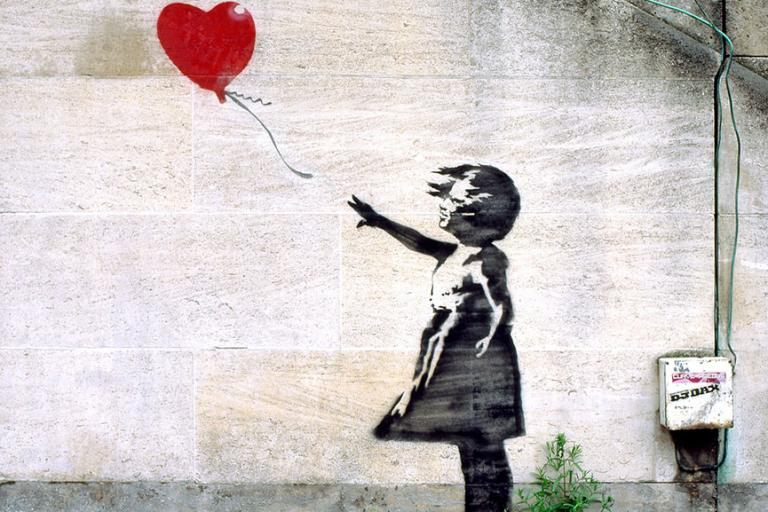
I get that it is past Valentine’s Day, but who cares? Love is a topic that transcends simple greeting card novelty. In fact, love is of such great value that it even transcends humanity. Many argue that love is the chief attribute of God and that nothing He does is apart from the great love He has for His creation.
What is it about love that makes it so different than any other form of relational expression? There is a great weight to the words, “I love You.” There is something about that phrase that extinguishes doubt and stokes the fires of passion. The passions are as many as they are diverse. You might express your love to a friend or you might express the desire you have for a partner. Regardless of the context of the discourse that proclaims such a feeling, its permanence and passion are of equal importance.
Not to echo the clichés of every love song ever written, but love comes with a cost. No doubt the greatest cost is loss. If love is the highest pinnacle of positive expression towards another, then loss is just as equally sorrowful. If love is what propels the soul into heavenly bliss, then loss buries us deeply in an inexpressible hell. You cannot have one without the inevitability of the other.
Some avoid love for this very reason. However, on the opposite side, others jump headlong into it. The reckless love they have for another is of such great passion, they cannot see past this into the possibility of pain. This inevitably results in a great fall into the pits of despair when something unexpected happens.
The Great Despair of the Father
Understanding love as the ultimate expression that one can have for another has new meaning in light of the relationship the Father has with His Son and His creation. What makes the Father’s love so powerful is that His love is so great for His creation that He willingly sacrificed His one and only Son for humanity.
But did the Father not love His Son? Yes, His love for the Son was just as great as it was for His creation. How devastatingly loving was it for God to sacrifice His one love for the many loves represented in humanity (John 3:16). We read a lot in Scripture about the sacrifice Christ made, but very little is dedicated to the sacrifice of the Father. The pinnacle of the Father’s loving sacrifice comes at the moment He experiences the great despair of placing the burden of humanity upon His Son’s flesh-torn shoulders.
The Love of Jesus
But the story of God’s love for His creation is not confined to the Father’s love for the creation but extends to the Son as well. Out of His love for the Father, the Son willingly made Himself the incarnate sacrifice for humanity.
Equally amazing is the love Jesus had for humanity.
“For I am convinced that neither death nor life, neither angels nor demons, neither the present nor the future, nor any powers, neither height nor depth, nor anything else in all creation, will be able to separate us from the love of God that is in Christ Jesus our Lord.”
~ Romans 8:38-39
We are shown in the Gospels that the love Jesus had for humanity was of such great importance that He accepted both the joy and the cost that came with that love. At times He laughed and rejoiced with His followers. He even wept at the loss of a friend. Jesus, more than anyone else, understood the cost of love. He understood that to love humanity meant that He would have to be willing to sacrifice Himself for that love.
“Greater love has no one than this: to lay down one’s life for one’s friends”
~ John 15:13
How We Love Others
“…By this everyone will know that you are my disciples, if you love one another.”
~ John 13:35
A few years ago, I had an unfortunate discussion with a professor of New Testament on social media. It was in the context of LGBTQ+ rights. He believed that we should not grant marriage rights to homosexual couples. I responded with a question: “How is that loving the LGBTQ+ community?” He responded, “I am showing them, love. They just don’t know it yet because they are blinded by their sin.”
Forget whether or not we love people the way Jesus does. My question is, “Do we love people at all?” If people can’t see love because they are blinded by sin, then that would apply to everyone in sin. No one would ever see love. Yet, we do experience love. We have to learn that love does not come with conditions.
I am convinced that many of these people who claim they are expressing love by pointing to the individual’s sin are really just afraid. They are afraid that they might make a human connection with another person who is different from them; that they might find a contradiction in what they believe to be true about that individual; that the individual is not as depraved as they think.
People like this think of love as a theoretical concept.
You cannot claim to love another person if you are not willing to take the risk of knowing that person. Loving another person means investing time into that person. Loving them means that you are willing to be there for them when times are tough. You cannot love someone while being emotionally distant. You cannot love someone out of convenience.
If we were to take loving others seriously – as Jesus did, then we must understand what love is. 1 Corinthians 13 is one of those scriptures that is so widely used when speaking about love, that it is almost impossible to read it without it sounding cliché. I would challenge you to look at this chapter and read it anew. Read it through the eyes of Christ – only then will you see how truly beautiful and relevant this chapter is in our lives. I have taken the verse numbers out so it can be read as intended:
If I speak in the tongues of men or of angels, but do not have love, I am only a resounding gong or a clanging cymbal. If I have the gift of prophecy and can fathom all mysteries and all knowledge, and if I have a faith that can move mountains, but do not have love, I am nothing. If I give all I possess to the poor and give over my body to hardship that I may boast, but do not have love, I gain nothing. Love is patient, love is kind. It does not envy, it does not boast, it is not proud. It does not dishonor others, it is not self-seeking, it is not easily angered, it keeps no record of wrongs. Love does not delight in evil but rejoices with the truth. It always protects, always trusts, always hopes, always perseveres.
Love never fails. But where there are prophecies, they will cease; where there are tongues, they will be stilled; where there is knowledge, it will pass away. For we know in part and we prophesy in part, but when completeness comes, what is in part disappears. When I was a child, I talked like a child, I thought like a child, I reasoned like a child. When I became a man, I put the ways of childhood behind me. For now, we see only a reflection as in a mirror; then we shall see face to face. Now I know in part; then I shall know fully, even as I am fully known.
And now these three remain: faith, hope and love. But the greatest of these is love.
So, go! Take the risk and love.
You can view my new UNenlightenment YouTube Channel HERE
You can view my new UNenlightenment Podcast HERE
You can follow me on FaceBook HERE














